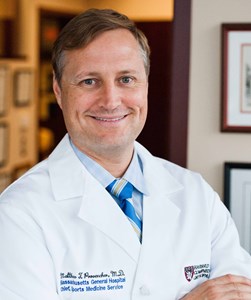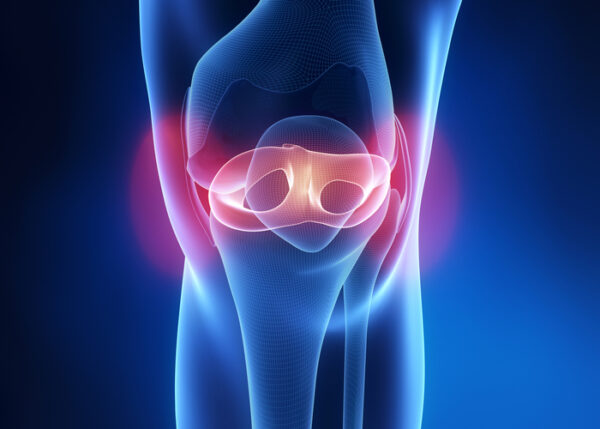Articular Cartilage Surgeon

Are you experiencing knee pain and swelling with activity? If so, you may have an articular cartilage defect. Articular cartilage defects occur when cartilage of the knee becomes damaged and can eventually lead to osteoarthritis. Articular cartilage surgeon, Dr. Matthew Provencher provides diagnosis and both surgical and nonsurgical treatment options for patients in Vail who need articular cartilage treatment. Contact Dr. Provencher’s team today!
What is Articular Cartilage Treatment?
The articular cartilage within the knee joint helps support a healthy knee. The smooth, white substance covers the ends of each bone and provides a fluid, pain-free motion. When articular cartilage sustains damage during a traumatic event or begins to wear down from the natural aging process, a patient will experience pain, swelling and decreased range of motion. Over time, the articular cartilage will wear down to the bone and cause painful osteoarthritis. Dr. Matthew Provencher, Vail, Aspen, Colorado Springs and Denver, Colorado orthopedic knee surgeon, usually begins articular cartilage treatment with non-surgical measures. If symptoms continue or worsen with conservative measures, a surgical knee cartilage repair may be performed by Dr. Provencher.
Cartilage injuries are diagnosed by Dr. Provencher after he performs a thorough medical review and physical examination. He will also perform a series of simple x-rays and an MRI scan to assess the amount of remaining cartilage and to identify defects in the cartilage surface.

When to Have Articular Cartilage Treatment
Articular cartilage treatment varies for each patient depending on patient’s age, patient’s activity level, defect size and location and associated knee injuries. Small defects are commonly treated with conservative measures, such as rest, modified activities, medications and a physical therapy program. If a large, focal defect is present or conservative measures fail to alleviate symptoms, Dr. Provencher may recommend a surgical knee cartilage repair. The type of surgical procedure performed depends on the size and location of the injured cartilage.
What are the Treatment Options for Articular Cartilage Damage?
There are several surgical techniques performed by Dr. Provencher to treat articular cartilage damage. Some of the techniques include:
- Chondroplasty: This arthroscopic approach is designed to trim away the damaged cartilage, providing symptom relief and eliminating the risk of further cartilage damage. Chondroplasty is typically performed in patients who do not present full thickness defects, or defects down to the bone.
- Microfracture: Microfracture requires Dr. Provencher to create tiny holes in the bony surface of the defect. The tiny holes allow marrow and stem cells to seep out which form a clot over the defect. This gradually leads to a covering of new fibrocartilage that replaces the damaged cartilage. Microfracture is typically performed in patients with full thickness loss but good surrounding tissue.
- Autologous chondrocyte implantation (ACI): ACI is a two stage procedure performed by Dr. Provencher where a biopsy of healthy cartilage is first removed from the knee. Cartilage cells are harvested from the biopsy tissue, expanded in a lab and then replanted in the patient’s knee during a second surgery, providing growth of new cartilage surfaces.
- OATs: There are two forms of OATs procedures- osteochondral autograft transfer and osteonchondral allograft transplantation. An autograft transfer requires tissue to be harvested from the patient, while an allograft requires a donor tissue from a tissue bank. In an autograft OATs procedure, small plugs of cartilage and bone are removed from the healthy portion of a patient’s knee and transferred to the damaged area. In an allograft OATs procedure, the cartilage and bone plugs are harvested from a donor and transplanted to the damaged area.
What is the Recovery Following Surgical Articular Cartilage Treatment?
Patients will be prescribed a strict physical therapy rehabilitation program after a knee cartilage repair procedure. It is strongly suggested that patients work with the in-house physical therapists at Howard Head Sports Medicine to optimize their rehabilitation. The physical therapy program varies for each patient based on injury severity and the articular cartilage treatment performed. Patients are encouraged to use crutches for a few days following chondroplasty. Patients are able to perform weight bearing with full range of motion activities following the procedure. Patients are encouraged to wear a brace for 6-8 weeks following Microfracture, an OATs or ACI procedure. Following the surgical procedure, patients will utilize a continuous passive motion (CPM) machine for about six weeks.
For additional resources on articular cartilage treatment, or to determine if you are a candidate for a surgical knee cartilage repair, please contact Dr. Matthew Provencher, orthopedic knee surgeon in the Vail, Aspen, Colorado Springs and Denver, Colorado area.